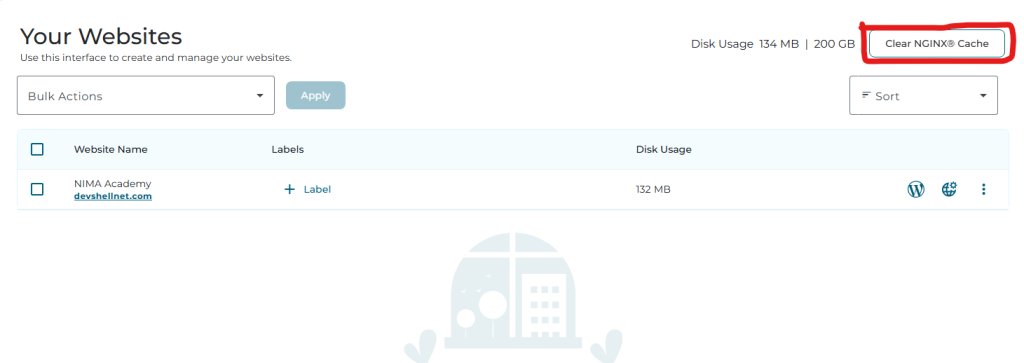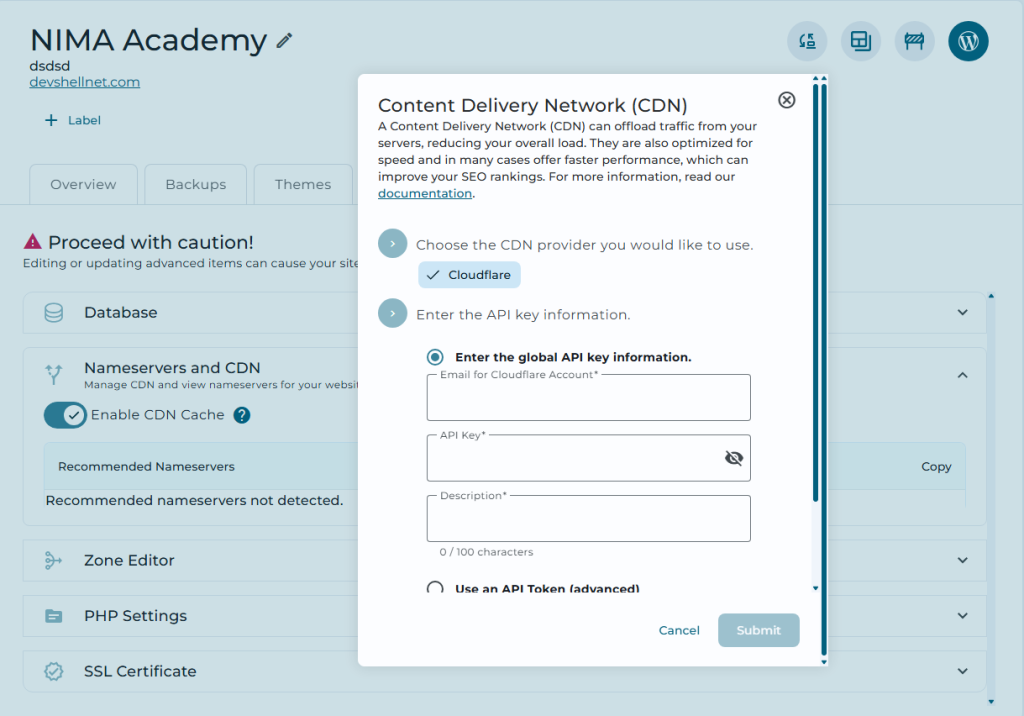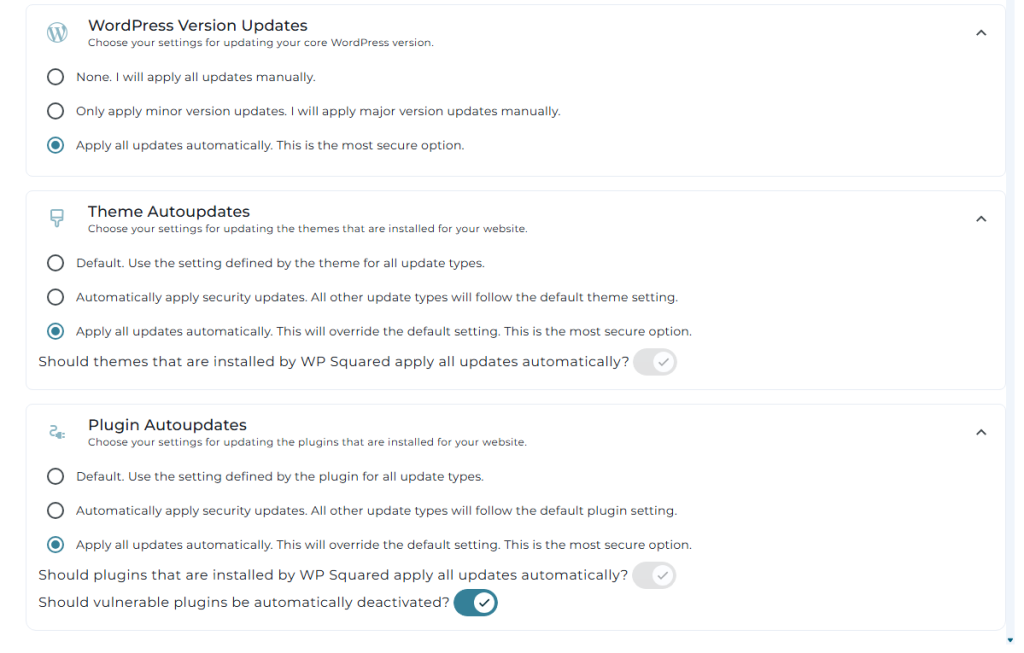
10 Proven Strategies How to Speed Up WordPress Website: An Ultimate Guide for Peak Performance
Is your WordPress website feeling sluggish? In today’s digital world, website speed is non-negotiable. A slow site frustrates visitors, hurts your Google ranking, and directly impacts your bottom line. Studies show that a 1-second delay in page load time can lead to a 7% reduction in conversions.
As a website owner, you know this is a problem. But as your web hosting partner, we know that speed is our shared responsibility. The good news? Optimizing your WordPress website for blazing-fast performance is achievable.
This ultimate guide will walk you through 10 actionable strategies to speed up your WordPress website, covering everything from your hosting foundation to expert-level tweaks.
Table of Contents
Why Website Speed is a Critical Metric for Your Business
Before we dive into the “how,” let’s quickly cover the “why.” A fast website:
- Improves User Experience (UX): Visitors stay longer and browse more.
- Boosts Search Engine Optimization (SEO): Google explicitly uses page speed as a ranking factor.
- Increases Conversion Rates: Faster checkouts and lead forms mean more sales and sign-ups.
- Reduces Bounce Rate: Users are far less likely to abandon a site that loads instantly.
10 Proven Strategies to Speed Up Your WordPress Website
1. Start with the Foundation: Choose the Right WordPress Hosting
This is the most critical factor. You can have the most optimized site in the world, but if it’s on slow, overcrowded shared hosting, you’ll always struggle for speed.
- The Problem: Budget shared hosting often means your site shares server resources with hundreds of other sites, leading to slow performance during traffic spikes.
- The Solution: Upgrade to performance-optimized hosting. Our hosting plans are built on powerful servers with dedicated resources, advanced caching, and are specifically configured for WordPress hosting to ensure maximum speed and stability from the ground up.
2. Implement a Caching Solution
Caching creates a static version of your dynamic WordPress pages, serving them to visitors instantly without running heavy PHP scripts on every visit.
- The Problem: Without caching, your server works overtime to generate each page from scratch for every new visitor.
- The Solution: Use a WordPress caching plugin. We recommend WP Rocket (premium) or W3 Total Cache (free). Many managed hosting plans (like ours!) include server-level caching, which is even more effective.

3. Optimize Your Images
Large, unoptimized images are the most common cause of slow page load time.
- The Problem: Uploading a 4MB photo from your camera directly to your site is a huge speed killer.
- The Solution:
- Resize images to the exact dimensions needed by your theme.
- Compress images before uploading. Use tools like ShortPixel, Imagify, or free online compressors.
- Use modern formats like WebP, which offer superior compression and quality.
4. Leverage a Content Delivery Network (CDN)
A CDN stores copies of your static files (images, CSS, JS) on a global network of servers. When a user visits your site, they download these files from the server closest to them.
- The Problem: If your server is in New York, a visitor from Sydney will experience slower load times due to physical distance.
- The Solution: Integrate a CDN like Cloudflare or StackPath. This dramatically reduces latency and is a must-have for a global audience. Some of our hosting packages include a free CDN integration!

5. Keep WordPress Core, Themes, and Plugins Updated
Updates aren’t just for new features; they often include critical performance enhancements and security patches.
- The Problem: Outdated code can contain inefficient routines or security flaws that slow down your site.
- The Solution: Regularly check for and install updates. Enable automatic updates for minor releases where possible.
6. Conduct Regular Plugin and Theme Audits
Not all plugins are created equal. Poorly coded plugins can significantly bloat your site and slow it down.
- The Problem: Having 30+ active plugins, some of which you don’t use or that are poorly developed.
- The Solution: Deactivate and delete any plugins you are not using. Test your site’s speed before and after installing a new plugin. Choose lightweight, well-coded alternatives from reputable developers.

7. Clean Up Your Database
Over time, your database accumulates clutter: post revisions, spam comments, transient options, and more. This can slow down database queries.
- The Problem: A bloated database takes longer to query, increasing the time it takes to generate pages.
- The Solution: Use a plugin like WP-Optimize or Advanced Database Cleaner to safely clean your database on a regular schedule.
8. Minify CSS, JavaScript, and HTML
Minification removes unnecessary characters (like spaces, comments, line breaks) from your code files without changing their functionality, reducing their file size.
- The Problem: Large, unminified code files take longer to download and process.
- The Solution: Most top-tier caching plugins (like WP Rocket) include minification features. You can also use plugins specifically designed for this, like Autoptimize.
9. Enable GZIP Compression
GZIP compression is a method where your server compresses files before sending them to a visitor’s browser, which then uncompresses them. This can reduce file sizes by up to 70%.
- The Problem: Sending large, uncompressed files over the internet.
- The Solution: GZIP is often enabled at the server level. You can check if it’s active using tools like GTmetrix. If you’re on one of our optimized hosting plans, it’s already enabled for you.
10. Reduce External HTTP Requests
Every element on your page (scripts, fonts, images, iframes) requires an HTTP request. The more requests, the longer the page takes to load.
- The Problem: Embedding multiple external scripts for fonts, analytics, ads, and social media buttons.
- The Solution: Limit the use of external scripts. Host fonts locally if possible. Lazy load videos and iframes (embed them so they only load when a user scrolls to them).
Your Fast, Reliable WordPress Hosting Partner
Optimizing your WordPress website is a continuous process, but it all starts with a solid foundation. You can implement every tip on this list, but without a hosting provider built for speed and performance, you’ll be fighting an uphill battle.
Our web hosting infrastructure is engineered specifically for WordPress. We provide:
- High-Performance Servers: SSD storage and ample resources for lightning-fast load times.
- Built-in Caching: Server-level caching ready to go from day one.
- Free CDN Integration: Easy setup to distribute your content globally.
- Expert Support: Our team understands WordPress optimization and is here to help.
Ready to see a dramatic difference in your website’s performance? [Check out our optimized WordPress hosting plans] and let us help you build a faster, more successful website.

Leave a Reply